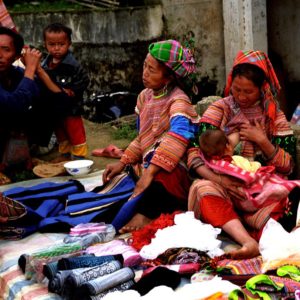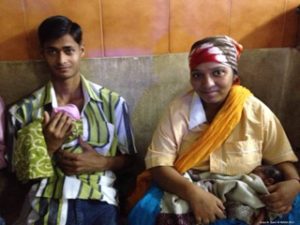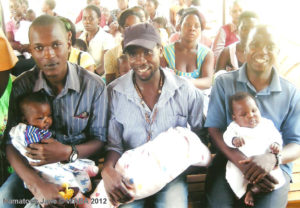As urban women and girls around the world march toward gender equality with men and boys to the tune of movements such as #HeforShe, #MeToo and #Time’sUp, rural women and girls in developing countries still struggle to get in step.

Rural women in developing countries often perform a large share of paid and unpaid work ( Boaz ©WABA )
Rural women and girls, especially in developing countries, lag significantly in nearly all facets of life – they work longer and harder in both paid and unpaid work, disproportionately carry the responsibilities of caring for their families and communities, and are under-represented in decision-making processes. Most rural women work in the informal sector with few maternity protections, if at all. Patriarchal systems hold them hostage to performing the bulk of caregiving work. Gender equality, especially for them, requires creative and sustainable social interventions.
Setting the scene for global gender equality, the State of the World’s Fathers: Time for Action report advocated for men and boys to take over at least 50 percent of unpaid work. But, how can rural communities get there? The World Alliance for Breastfeeding Action (WABA) provides a possible pathway.
The Empowering Parents Campaign (EPC) promotes social protection measures and changes in social norms to empower parents and caregivers to facilitate the integration of caring work (including breastfeeding) and other work. For rural communities, this addresses both women’s and men’s roles as caregivers and providers — in unpaid and paid work, in formal and informal sectors.
“The promotion, protection and support of breastfeeding in rural communities can, by design, be another entry point for the empowerment of women, ” says Dr. Amal Omer-Salim, WABA Executive Director.

Changing perceived gender roles in caregiving can accelerate gender equality
( Deepa © WABA 2013 )
EPC pushes the challenge of changing social norms to the forefront. By partnering with civil society and local grassroots activists, rural communities can be collectively empowered to recognise that breastfeeding plays a particularly important role in the health and wellbeing of families. This means that breastfeeding needs to be supported by everyone in the community, including men and boys. Hormonal and neurobiological changes happen in both men and women, and can result in more nurturing behaviors toward their child, if they are supported to do so. This premise unleashes the potential of fathers and men, and mothers and women, to shun stereotypical assumptions about nurturing, caregiving and work together toward greater gender equality.

Supporting a woman’s right to breastfeed empowers
men, women and their children
( Namatovu © WABA 2012 )
A briefing paper by Family Included noted that breastfeeding decisions are so deeply embedded in family decision-making that researchers adopted the term “breastfeeding teamwork” to describe it. Breastfeeding teamwork includes shared responsibilities and increased collective involvement in child-rearing. The research also points out that effective breastfeeding support by a father includes the ability to be responsive to the mother’s needs, including respecting her autonomy when she does not actually need help. This also reflects that the involvement of fathers and men in the support of breastfeeding is woman-centric, and empowers her within a family and community.
Breastfeeding is central to the wellbeing of all families, and therefore should be central in efforts to bridge the gap of gender equality in communities, rural and urban alike. This will benefit women and men, girls and boys. Everyone’s in it together, marching to the tune of global gender equality.